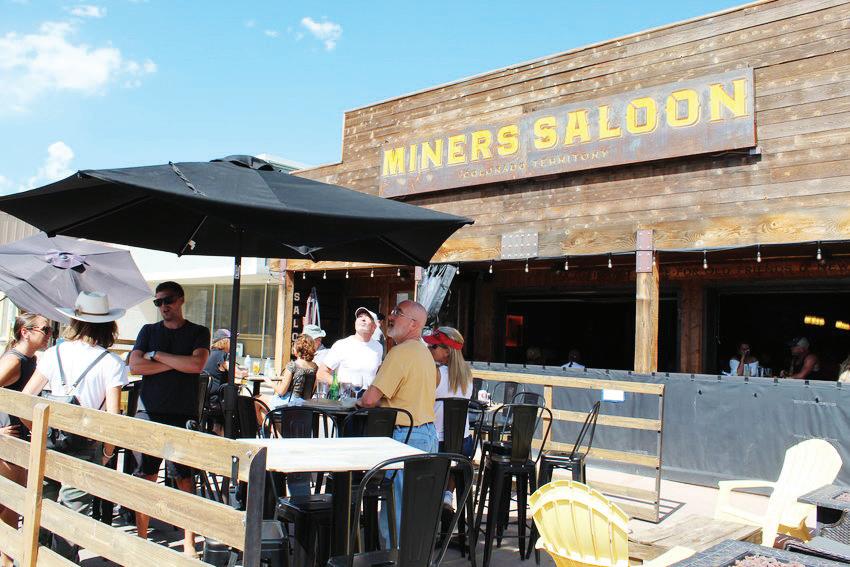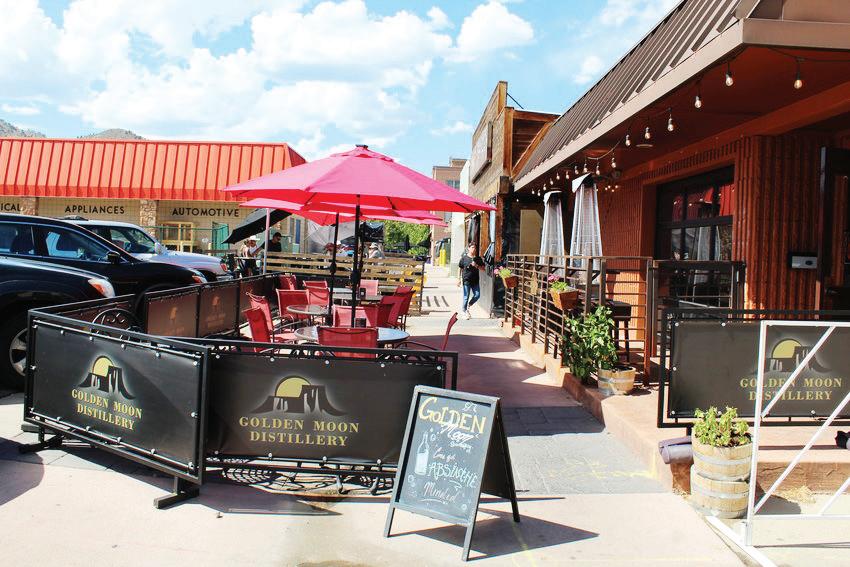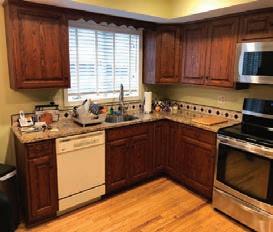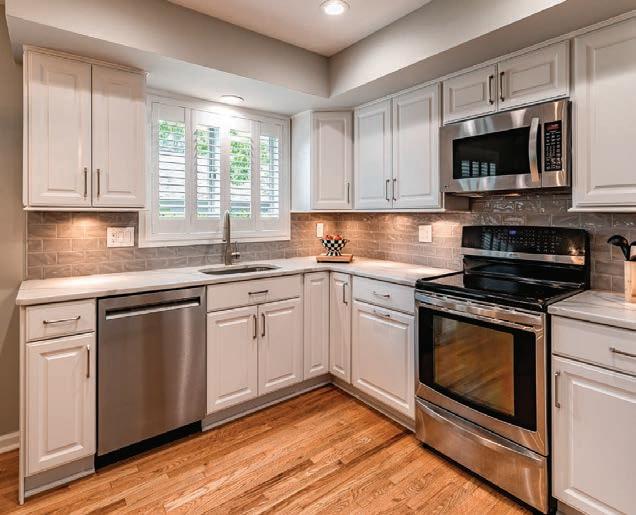
3 minute read
Golden sets $2,050 max fee for businesses’ outdoor dining
Downtown-based program kicks o April 21

BY CORINNE WESTEMAN CWESTEMAN@COLORADOCOMMUNITYMEDIA.COM

When Golden kicked o its COVID-19-based outdoor dining program in 2020, it asked for a nominal $50 fee from participants.
e thought at the time, as city sta explained recently, was that businesses were su ering, and the city shouldn’t overcharge them as they were getting back on their feet.
ree years later, though, the city’s looking to recoup more associated costs and has set a maximum fee of $2,050 for participating businesses in 2023.
During its April 11 meeting, the City Council approved a few changes to downtown Golden’s outdoor dining program, including the increased fees. e city’s outdoor dining program, which is also called the parking space program, runs April 21-Nov. 7 this year.

e 1100 block of Miners Alley, which previously participated in a separate program previously, is now essentially under the same program as the Washington Street businesses. Golden may pursue a common consumption area there in the future, though, according to city sta .
Along with the $2,050 maximum fee to cover the program’s hard costs, the councilors considered imposing additional fees for using public space, but the business owners in attendance told them it’d be onerous and unfair, especially with short notice.
ey also said the $2,050 maximum fee should be amortized over the next few months, which the councilors agreed to. City Council will vote on an o cial fee schedule at its April 25 meeting.
Cost and communication breakdown

Rick Muriby, the city’s director of community and economic development, gave a breakdown of the hard costs associated with implementing the outdoor dining program. e city’s charging a $300 application fee; $1,500 will cover setting up the enclosures in April and taking them down in November; and $750 will
After Refacing


cover the ADA ramps so patrons can access the seating areas from the sidewalks.
e councilors believed the $750 ADA ramp could be amortized over three years, knocking it down to $250 for this year, and at least two business owners pointed out that their enclosures don’t need ramps because they’re already at street level.
Beyond the hard costs, Muriby also asked the councilors whether they wanted to charge the participants a right-of-way usage fee, outlining an additional $1,000-$2,000 in fees for businesses based on the size of their enclosures.
Muriby said city sta discussed these ROW usage fees with business owners earlier this spring, and said sta gave the wrong estimate on fees. Sta members sent out corrected numbers later, but several business owners still voiced concerns.
During public comment on April 11, the owners described how they were activating the space, bringing in additional sales tax for the city, and that the public overwhelmingly supports the program. Golden Moon Distillery co-owner Stephen Gould also pointed out how ROW usage fees are typically for non-revenuegenerating uses like construction dumpsters.
“I’m going to implore you not to make this cost prohibitive,” Gould told the councilors.
Some owners felt fees to cover the program’s hard costs was fair, but the ROW usage fees would be too far.
Jon Bortles of Woody’s Wood-Fired Pizza said restaurants already operate on slim margins, and imposing onerous fees would mean fewer participants in this year’s program.
Plus, Bortles and his colleagues were also disappointed with the lack of communication between the city and the business community about it, with Bortles saying they felt “ambushed by the fee structure” so close to the program’s start date.
Overall, as Café 13 co-owner Jennifer oemke said, “It feels like we’re not being heard.”
Councilors’ comments
While the councilors ultimately agreed on fees that covered the program’s hard costs. ey said there could be adjustments based on whether businesses need an ADA or whether the Downtown Development Authority could help cover some of the costs, but ultimately said fees for 2023 shouldn’t exceed $2,050.
A few councilors were in favor of ROW usage fees, saying they believed it was unfair that some businesses can bene t from the program while others are ineligible based on their locations, types of business or other factors.
Mayor Laura Weinberg stated how, while outdoor dining is valued by the community, doing so on public property takes away from an- other use. She emphasized how the program’s only available for certain downtown businesses, and Councilor JJ Trout felt similarly, asking, “What’s the cost to these businesses in other parts of Golden that can’t participate?”
Councilor Rob Reed said he felt con icted, as he shared many of Weinberg and Trout’s concerns but also wanted the program to succeed. “I’m so sorry about the timing and the fee discussion,” he told the business owners. “ … It was unfair to the businesses to not know well in advance, and you have my sincerest apology.”










